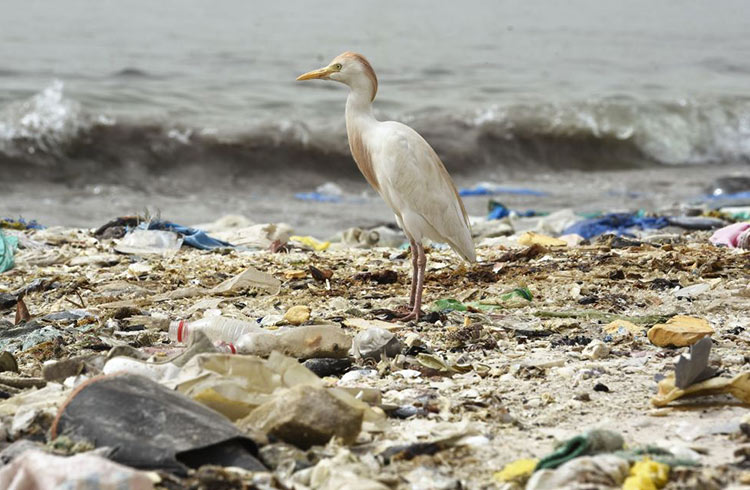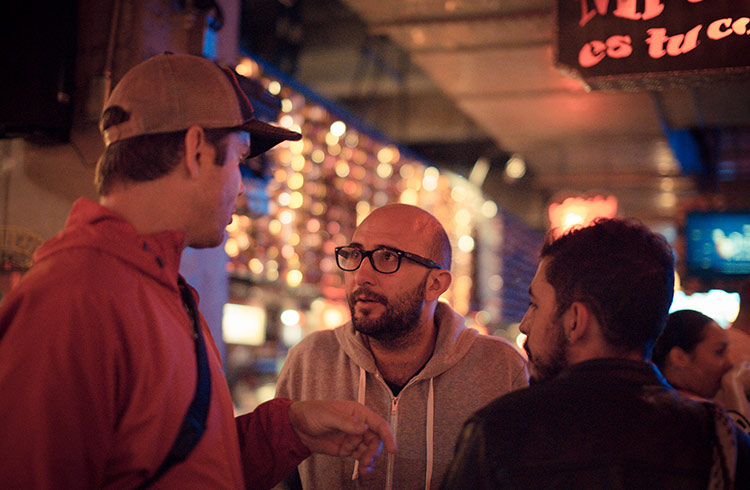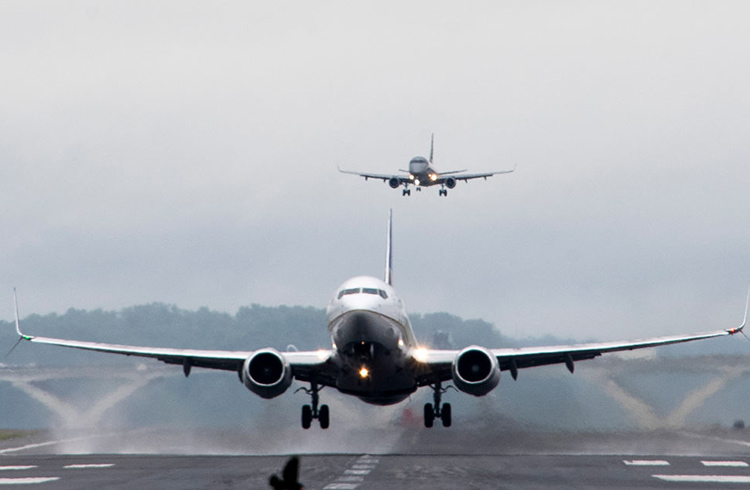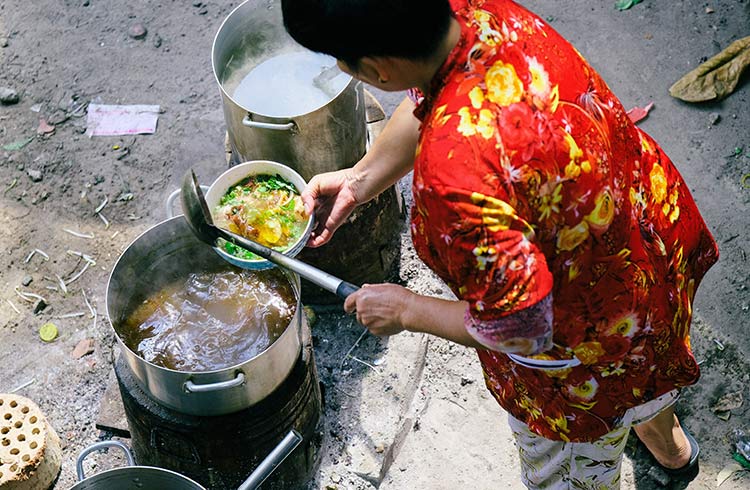11 Easy Ways To Avoid or Use Less Plastic When You Travel
From using bamboo toothbrushes to avoiding airline food, Conor Purcell examines how we can reduce the impact of single-use plastic when we travel.
 Photo © Getty Images / SEYLLOU
Photo © Getty Images / SEYLLOU
- How bad is the ocean’s plastic crisis?
- Where is all the plastic coming from?
- What can travelers do to help?
- What can you do when you get home?
Picture the scene: the sun dips below the horizon in a remote tropical idyll as you drink in the beauty of a picture-postcard sunset. Enter stage right: a tangled mass of plastic debris floating onto the shore, a few dead fish tangled up amongst it. Not quite what you had in mind, is it?
While there's been a lot written about the need to reduce our use of plastic at home, it's also important to think about how we use plastic when we travel. The unfortunate butterfly effect of pollution means that a plastic bottle discarded in San Diego can eventually find its way to that tropical beach you were relaxing on.
Luckily, there are plenty of ways travelers can help fight against the scourge of single-use plastic, and keep all those bucket-list destinations pristine.
How bad is the ocean’s plastic crisis?
The exact number is impossible to pinpoint, but National Geographic estimates there are 5.25 trillion pieces of plastic in the ocean. According to Greenpeace, that’s more than the equivalent of one truckload of rubbish being emptied into the ocean every minute. The most infamous area is the ‘Great Pacific Garbage Patch’ which is exactly what it sounds like – a massive, floating accumulation of trash, the largest on the planet. Between California and Hawaii, it's estimated that 1.8 trillion plastic pieces are bobbing around. That's the equivalent of 250 pieces of plastic for every human on the planet. And it’s not the only one. There are similar – albeit smaller – so-called garbage patches in every ocean on the planet.
The effects are long-term and, predictably, devastating. Sealife is harmed in a variety of ways: through entanglement, ingestion and starvation. The chemical build-up of the debris also harms the underwater habitat, and ultimately it damages communities that live by the sea, harming the fishing, shipping and tourism industries.
It also directly hurts birdlife. According to the photographer and environmentalist, Chris Jordan, nearly all of the 1.5 million Laysan albatrosses that inhabit the Midway Atoll, in the North Pacific, have plastic in their gastrointestinal tract. About one-third of their chicks die, many due to their parents unwittingly feeding them plastic. The figures are staggering. The Sea Turtle Conservancy, the oldest sea turtle conservation group in the world, estimates more than a million marine animals are killed each year due to plastic in the ocean.
Where is all the plastic coming from?
The non-profit 4Ocean, set up by two surfers in 2017, reports that “up to 90 percent of ocean plastic comes from a land-based source and enters the ocean through a river mouth.” Since 4Ocean launched, it has removed more than 42 million pounds (over 19 million kilograms) of trash from coastlines around all over the world. It funds the clean-ups through the sale of a range of products and each item sold funds the removal of trash.
4Ocean says that “Man-made causes (such as improper disposal or littering) and natural causes (such as storms, rain, and wind) contribute to ocean plastic pollution.” The key to solving the crisis? “To continue educating the public about the root causes and impact of plastic in the ocean.”
What can travelers do to help?
Pack a water filter
In countries where the local water isn't safe to drink, the default solution is to buy bottled water. However, approximately 1 million plastic bottles of water are bought every minute worldwide. While travelers make up a small fraction of that total, buying a reusable water bottle with a filter means you can use it before, during and after your trip. The LifeStraw bottle claims to remove 99.99% of bacteria and is no bigger than a regular water bottle.
Refuse airline food
Airlines love plastic. Everything from the rock-hard bread rolls to the stew-like substances they serve up is wrapped in the stuff. While bringing your own food in a reusable lunchbox helps, it’s more effective to contact the airlines directly (or via social media) and ask them about what they are doing to reduce their plastic usage. Some airlines are taking this seriously, and all airlines care what their customers think about them. They won’t make this a priority unless you do.
Don't use single-use plastic in hotels
Hotels love their tiny bottles of shampoo and shower gel. And, to be honest, so did I, until I started thinking about the effect all that plastic was having on the world’s sea life. Bring your own reusable travel-sized toiletries; use a combined shampoo and conditioner, and use soap instead of shower gel. Talk to the hotel manager about their plastic use policy; don’t hector them, but suggest alternatives – much of this is about awareness. When leaving reviews on the likes of TripAdvisor, mention their plastic usage – for example, do they have cotton buds individually wrapped in plastic? Call them out on this in your reviews – they care what’s said about them online, so you can use this to your advantage.
Use a bamboo toothbrush
Yep, bamboo toothbrushes are a thing, and yes, they look pretty cool. Since launching on Earth Day 2013, Woo has sold more than six million bamboo toothbrushes, made from natural, biodegradable bamboo. The environment and your inner panda will thank you.
Pick up trash in remote areas
While many travelers make an effort to leave places of natural beauty the way they found them, some don't. Win some karma points by picking up trash wherever you find it, in deserts, forests, and mountains. Return it to civilization (and the nearest recycling bin), and you will have made the natural environment more beautiful, and safer for the wildlife that lives there.
Buy quality products
If it is of a higher quality, it will last longer which means fewer will be discarded, which means – you guessed it – less trash. A high-quality backpack or pair of hiking boots can last a decade or more, which is better for your pocket in the long run, and much better for the environment.
What can you do when you get home?
Reduce your use of plastic
Keep using that filtered, reusable water bottle and those bamboo toothbrushes. Those good habits shouldn't stop just because you are back home.Reuse and recycle
Figure out where most of your plastic comes from. Work out how you can reduce the amount you use – every little helps.Talk to local businesses about using less plastic
Leave reviews on the likes of Yelp and Google Maps; let the owners know that reducing their use of plastic will ensure you return; Two relatively easy wins: suggest they use compostable coffee cup lids and stop using straws altogether.Lobby your local politicians
Politicians often only act when it's in their own interests; so make sure and let them know that your vote depends on them pushing for less plastic usage.Volunteer
Take part in ocean and beach clean-ups organized by organizations such as the Ocean Conservancy and 4Ocean. Check if there are any in your local area – if there aren’t, why not start one?
Related articles
Simple and flexible travel insurance
You can buy at home or while traveling, and claim online from anywhere in the world. With 150+ adventure activities covered and 24/7 emergency assistance.
Get a quote


No Comments